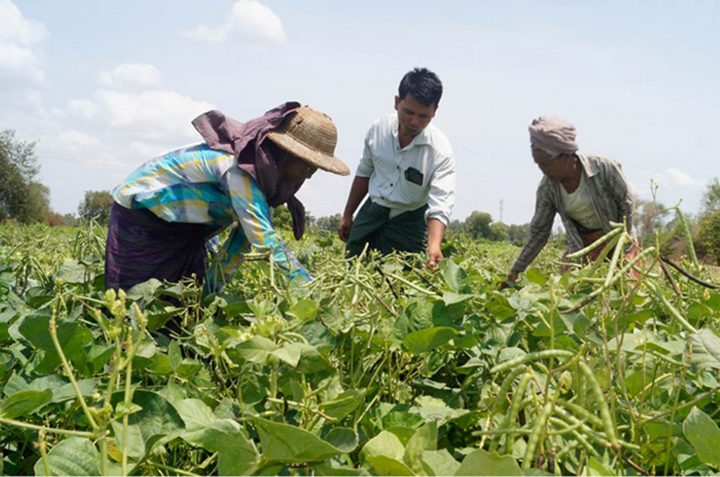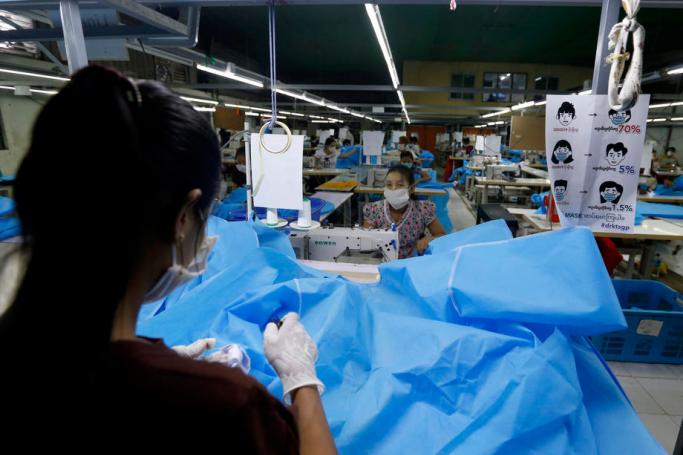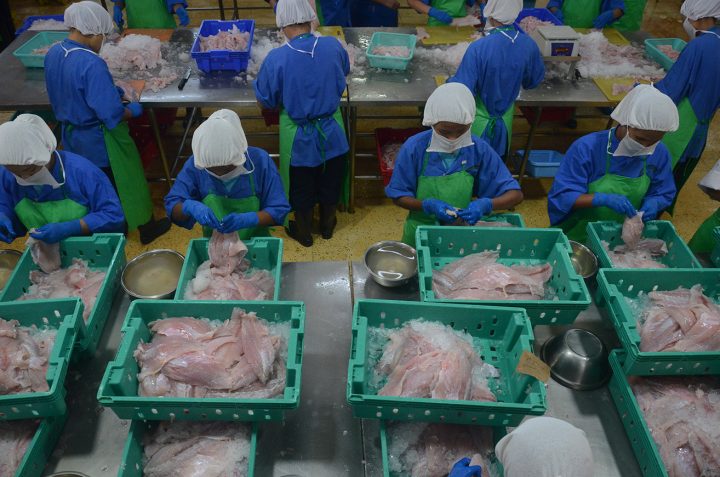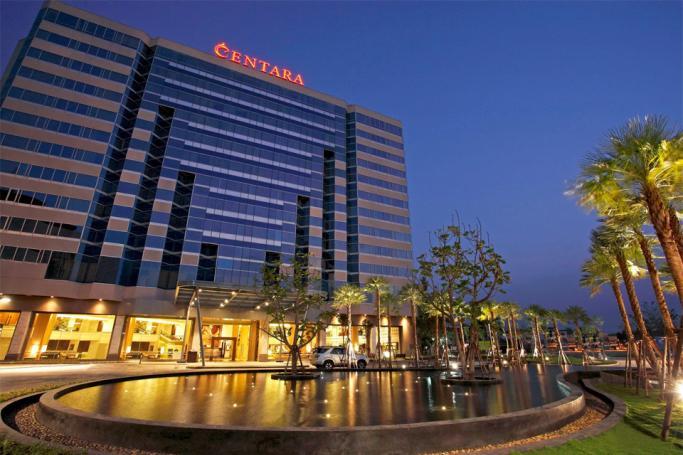![]() — หน้าแรก — เกาะติดข่าว
— หน้าแรก — เกาะติดข่าว
ข่าวเศรษฐกิจและธุรกิจประจำสัปดาห์
-

Myanmar exports agricultural products which worth USD $ 3.3 billion in the current financial year
The agricultural sector is the lifeblood of Myanmar and is the first prioritized business of the country. Agriculture is the backbone of Myanmar’s economy and rice, pulses and beans are the country’s leading agricultural products. In Myanmar, agricultural sector accounts for over 37 per cent of the country’s GDP and employs about 70 per cent of the labour force. The agricultural sector plays an important role in reducing poverty rate in Myanmar. Myanmar’s exported agricultural products worth US$ 3.3 billion to foreign countries between 1 October last year and 31 July in the current financial year, an increase of US$500 million against a year-ago period, according to the figures released by the Ministry of Commerce. Myanmar earned US$2.8 billion from agricultural products export in the first ten months of the financial year 2018-2019. In the country’s export sector, the agriculture industry accounted for almost 22 per cent of overall exports. The main items of export in the agricultural sector are rice and broken rice, beans and pulses and maize. Fruits and vegetables, sesame, dried tea leaves, sugar, and other agricultural products are also transported to other countries around the world. About 60 different types of crops are grown across the country. -

Myanmar Online Expo Park (Virtual) attracted more traders from foreign countries
Traders from foreign countries are interested to buy Myanmar food, fruits and vegetables exhibited in the Myanmar Online Expo Park (Virtual), which was held from 24 to 30 August, according to the Myanmar International Trade Centre. The online expo focused on business matching with Japan, China and Singapore. Traders from Japan want to buy Myanmar readymade food including tins of sardine, canned beef, instant noodles and instant vermicelli noodles. Traders from Singapore are interested to buy fruits and vegetables including mangoes, tomatoes, pomelos and chillies. Traders from China are keen to buy beans, sesame, rice, fishery products, dried tea leaves and lotus cotton. -

Myanmar’s garment sector has been faced the hardship due to the impact of coronavirus pandemic
The cut-make-pack (CMP) garment sector in Myanmar has been hit hard by the coronavirus impacts amid the global demand slump, said an official of Myanmar Garment Manufacturers Association, state media reported. Supply chain disruptions and cancelling customer orders following the coronavirus outbreak hurt the global textile industry. Similarly, the CMP garment sector which contributes to 30 per cent of Myanmar’s export sector is bracing for downward trend owing to the cancellation of orders from European countries and suspension of the trade by western countries amid the pandemic. -

Around 56 factories and workplaces are completely shut down in 7 months amid COVID – 19 crisis
A total of 173 factories were hit hard by the coronavirus impacts in the past seven months (1 January and 31 July), including the closure of 56 factories and workplaces, temporary closure and layoffs, said Daw Moe Moe Su Kyi, Regional Minister for Immigration and Human Resources. She responded to the queries raised by Daw Aye Aye Mar of Lanmadaw constituency, at the twelfth regular session of the Second Yangon Region Hluttaw held on 31 August. Daw Aye Aye Mar asked whether the factories that were closed during the pandemic are in line with past commitments during its establishment. She also questioned the number of factories shut down, the reason for the closure and further plans. Those 173 factories have over 42,000 workers, and some of them are applying for new jobs posted by the Department of Labour, she continued. -

Myanmar plans to import over 3 million broiler chicks from Thailand in 4 months to fulfill domestic needs
To fulfil domestic needs, Myanmar targeted to import 3.79 million broiler chicks from Thailand in September as a monthly temporary project, under which the import has been conducted starting from June, according to Myanmar Livestock Federation (MLF). “Because of the coronavirus outbreak in April and May, the local broiler chicken breeders dropped the production of chicken because of decreasing demand. The COVID-19 outbreak is not worse in the country, and broiler poultry businesses are re-operated again. So, we have market demand, and we are planning to import the broiler chicks from Thailand,” said MLF Vice-Chairman (3) Dr Nay Thurein. The country will import 1.7 million broiler chicks for the third time from Thailand in one and a half months from 15 August to 30 September. -

Total border trade value exceeded over USD $ 9.5 billion from 1 October to 21 August in 2019 – 2020 financial year
The total trade value at 18 border trade camps exceeded US$9.56 billion from 1 October to 21 August in 2019-2020 financial year (FY), according to the Ministry of Commerce. During this period, the total border trade value amounted to $9.56 billion, an increase of $334 million compared to that of the same period last year. The border trade value hit $9.23 billion last year. The total border trade value included $6.45 billion in export and $3.11 billion in import. -

Myanmar imported fuel oil 5 million tonnes up over the past ten months of the current financial year against the period year
Myanmar imported nearly US$2.37 billion worth 5 million tonnes of diesel and gasoline over the past ten months of the current financial year, showing an increase of 500,000 tonnes compared to the corresponding period of last year, according to the Ministry of Commerce. However, the import values stood at $2.67 billion during a year-ago period, and the figures reflect a decrease of about $300 million this year, said an official of the Ministry of Commerce. The oil and gas sector has been crashed during COVID-19 outbreak. Oil price went negative on 20 April as there is no place to store all the crude the world is producing, but not using. The global market remains broken, leading domestic oil price plunge to more than 50 per cent in April against January’s prices. -

Myanmar has gained high demand from foreign markets as more marine products are produced safely
Myanmar is exporting more fishes, prawns and other marine products to 40 countries including China, Japan, Korea, Thailand, the US, the Middle East countries and European Union. The country has gained high demand from foreign markets as more marine products are produced safely, according to the Basic Training Course for Safe Maritime Production Batch (1/2020) opening ceremony. “There are currently 124 aquatic processing industries and 27 of them have permission to export to EU. As per the export countries’ requirements of food safety, the relevant country’s department has to issue necessary health certifications and quality assurance. As every country asks for the food safety system now, the Department of Fisheries is focusing on serving in accordance with the foreign markets. This year’s marine export volume is over US$ 750 mln, an increase of $110 compared to the year-ago period. The Basic Training Course for Safe Maritime Production Batch (1) has started from 23 August. In this financial year, 50 quality controllers from fish and prawn processing factories will attend the training, and 50 people in the next budget year in coming September,” said the Deputy Director from Quality Control and Research Section of the Department of Fisheries. -

Myanmar has attracted over USD $ 24.6 billion from the foreign direct investment (FDI) over the four years
Myanmar has attracted over US$24.6 billion over the four years under the incumbent government, and Singapore tops the list, according to the Directorate of Investment and Company Administration (DICA). The Myanmar Investment Commission (MIC) and the respective investment committees granted permits and endorsements to 1,004 foreign enterprises between 2016-2017 Financial Year and as of July-end in the 2019-2020FY, with estimated capitals of $24.6 billion. Of them, Special Economic Zones raked in investments worth $1.348 billion from 58 enterprises under the Special Economic Zone Law in the past four years, while FDI of $23.26 billion flowed into the country under the Myanmar Investment Law, the DICA’s data showed. -

Centara Hotels & Resorts, Thailand’s leading hotel operator will open three new hotels in Myanmar
Centara Hotels & Resorts, Thailand’s leading hotel operator, has signed management agreements with three new hotels in Myanmar, TTRweekly reported. The agreements cover three hotels developed by SL International Construction Co Ltd. The properties will be rebranded Centra by Centara Hotel Thiri Hpa-An, Hpa-An Hilltop Resort & Spa, and Centara Hotel Mandalay.
เกาะติดข่าว
Copyright © 2014 Business Information Center All Rights Reserved.







